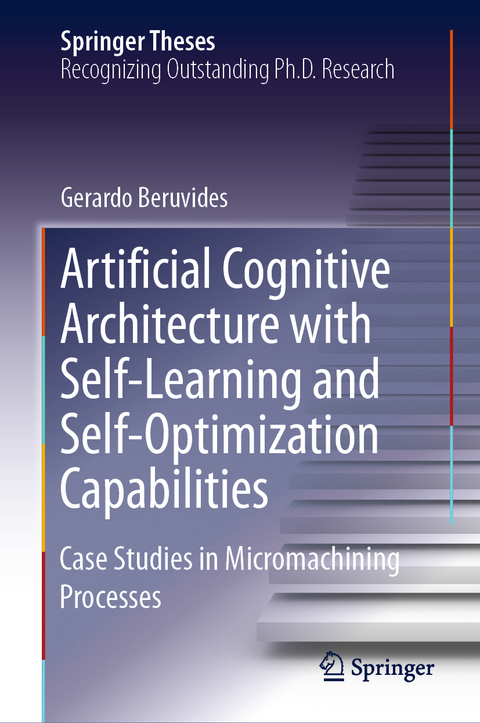
Artificial Cognitive Architecture with Self-Learning and Self-Optimization Capabilities
Springer International Publishing (Verlag)
978-3-030-03948-6 (ISBN)
This book introduces three key issues: (i) development of a gradient-free method to enable multi-objective self-optimization; (ii) development of a reinforcement learning strategy to carry out self-learning and finally, (iii) experimental evaluation and validation in two micromachining processes (i.e., micro-milling and micro-drilling). The computational architecture (modular, network and reconfigurable for real-time monitoring and control) takes into account the analysis of different types of sensors, processing strategies and methodologies for extracting behavior patterns from representative process' signals. The reconfiguration capability and portability of this architecture are supported by two major levels: the cognitive level (core) and the executive level (direct data exchange with the process). At the same time, the architecture includes different operating modes that interact with the process to be monitored and/or controlled. The cognitive level includes three fundamentalmodes such as modeling, optimization and learning, which are necessary for decision-making (in the form of control signals) and for the real-time experimental characterization of complex processes. In the specific case of the micromachining processes, a series of models based on linear regression, nonlinear regression and artificial intelligence techniques were obtained. On the other hand, the executive level has a constant interaction with the process to be monitored and/or controlled. This level receives the configuration and parameterization from the cognitive level to perform the desired monitoring and control tasks.
Introduction.- Modeling Techniques for Micromachining Processes.- Cross Entropy Multi-Objectve Optimization Algorithm.- Artificial Cognitive Architecture Design and Implementation.
| Erscheinungsdatum | 02.02.2019 |
|---|---|
| Reihe/Serie | Springer Theses |
| Zusatzinfo | XXIX, 195 p. |
| Verlagsort | Cham |
| Sprache | englisch |
| Maße | 155 x 235 mm |
| Gewicht | 508 g |
| Themenwelt | Informatik ► Theorie / Studium ► Künstliche Intelligenz / Robotik |
| Technik ► Elektrotechnik / Energietechnik | |
| Technik ► Maschinenbau | |
| Schlagworte | Computational Intelligence Models • Cyber-Physical Systems • Distributed Control Architecture • Expert Systems • Force Signal Processing • Fuzzy controllers • Industrial Use Case • Micromachining Processes • Multi-objective Cross-entropy • predictive models • Q-learning Algorithm • Raspberry Implementation • Roughness Surface Model • Self-adaptive control • Self-decision-making • Self-learning • self-optimization • sensors • vibration analysis |
| ISBN-10 | 3-030-03948-X / 303003948X |
| ISBN-13 | 978-3-030-03948-6 / 9783030039486 |
| Zustand | Neuware |
| Haben Sie eine Frage zum Produkt? |
aus dem Bereich


